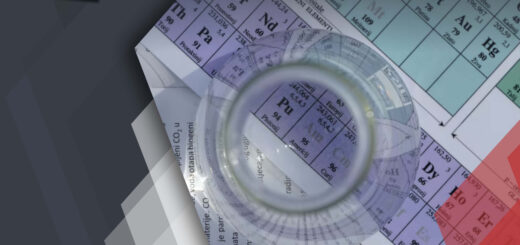Various kinds of Substance Records available in CAS Registry
Unique CAS Registry Number– The CAS Registry Number® (CAS RN®) is a unique identifier that provides an unambiguous means to distinguish chemical substances or molecular structures when there are many possible systematic, generic, proprietary or otherwise trivial names. CAS RNs are widely used as an authoritative global industry standard to ensure the accuracy of chemical information. For example, the CAS RN for “Caffeine” is 58-08-2
CA Index Names- It is a specific name given by the Chemical Abstracts Service database to each chemical for its true identification. However, this index name is applicable only to this database and is not a Universal identification number.
Synonyms- Synonyms are names that are interchangeably used for a particular chemical. For example, Caffeine is also called as Guaranine, Methyltheobromine 1, 3, 7-Trimethylxanthine and Theine.
Structure diagrams- The structure diagram of a chemical compound is a graphic representation of the molecular structure, showing how the atoms are arranged. The chemical bonding within the molecule is also shown, either explicitly or implicitly. For example, the structure diagram for caffeine.
Stereo-chemistry- Stereochemistry, is a subdiscipline of chemistry, involves the study of the relative spatial arrangement of atoms that form the structure of molecules and their manipulation. For this reason, it is also known as 3D chemistry—the prefix “stereo-” means “three-dimensionality”.
Molecular formulas- Molecular formula or chemical formulais a representation system that shows the total number and kinds of atoms in a molecule, but not their structural arrangement. For example, the molecular formula of aspirin is C9H8O4 and the molecular formula of Caffeine is C8H10N4O2.
Ring data– In chemistry, a ring is an ambiguous term referring either to a simple cycle of atoms and bonds in a molecule or to a connected set of atoms and bonds in which every atom and bond is a member of a cycle (also called a ring system). A molecule containing no rings is called an acyclic or open-chain compound. Such information of a particular ring is called as Ring data. We can extract ring data from CAS Registry.
Alloy Composition Tables– Alloys are metallic compounds composed of one metal and one or more metal, or non-metal, elements. Alloy composition tables give relevant information pertaining to its properties, such as, good electrical conductivity, high strength, and hardness, or heat and corrosion resistance etc.
Protein and nucleic acid sequences- Protein sequencing is the practical process of determining the amino acid sequence of all or part of a protein or peptide. The two major direct methods of protein sequencing are mass spectrometry and Edman degradation using a protein sequenator (sequencer). CAS registry helps searchers find exact amino acid sequences of proteins to determine its characteristics.
Classes for polymers- A polymer is a large molecule, or macromolecule, composed of many repeated subunits. Because of their broad range of properties, both synthetic and natural polymers play an essential and ubiquitous role in everyday life. Some common classes for polymers are Biopolymer, Inorganic polymer, Organic polymer, Conductive polymer, Copolymer, Fluoropolymer, Gutta-percha (Polyterpene), Phenolic resin, Polyanhydrides, Polyketone, Polyester, Polyolefin (Polyalkene),Polyolefin (Polyalkene), Rubber, Silicone, Silicone rubber, Superabsorbent polymer, Synthetic rubber, Vinyl polymer. Understanding the nature of a polymer is important to describe it in its totality. CAS Registry helps us understanding various dynamics of a polymer.
Experimental property data- These are those data pertaining to a chemical those are tested, researched and proved. It can be anything like boiling point, melting point, thermal conductivity, permeability etc.
Predicted/calculated property data- These are those data that are yet to be tested and verified.




